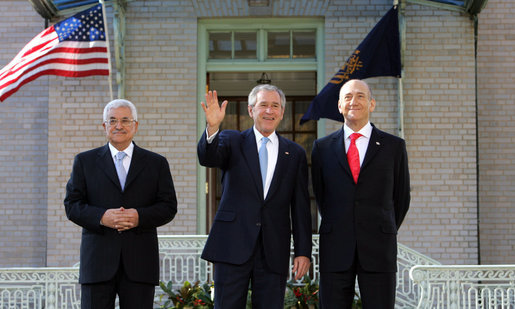Call him, if you will, Mr. Asterisk.
Within a period of only four months, Benjamin Netanyahu has earned two asterisks next to his name, one of which he would dearly like to delete from the record.

Last summer, he surpassed David Ben-Gurion as Israel’s longest-serving prime minister. Netanyahu won his first election in 1996 and served until he was defeated in the 1999 election. He formed his second government in 2009, his third in 2013 and his fourth in 2015. Despite two deadlocked elections since last April, he remains in office as the caretaker premier.
On November 21, Netanyahu had the dubious distinction of becoming the first serving Israeli leader to be indicted on charges of corruption: fraud, breach of trust and bribery. One of Netanyahu’s predecessors, Ehud Olmert, suffered a similar fate in 2008, but had the sense or grace to resign before he was formally charged. Subsequently, Olmert was sentenced to prison, where he spent 16 months.

The bill of indictment against Netanyahu, a watershed moment in Israel, was issued by his former cabinet secretary, Attorney General Avichai Mandelblit, in a 63-page document.
“I made this decision with a heavy heart but with a whole heart and a sense of commitment to the rule of law,” he said at a news conference. “Law enforcement is not a discretionary matter. It is an obligation that is imposed on us. It is my duty to the citizens of Israel to ensure that they live in a country where no one is above the law and that suspicions of corruption are thoroughly investigated.”

Exactly.
The indictment against Netanyahu was released a day after Blue and White Party leader Benny Gantz formally returned his mandate to President Reuven Rivlin after spending three weeks trying to form a coalition government. Netanyahu, for the second time in five months, had also attempted to cobble together a government, which would have been his fifth in 23 years.
The spotlight is now on the Knesset, which has until December 11 to choose a candidate who can muster a 61-seat majority in the 120-seat house. This is the first time in Israeli history that parliament has been mandated to select a prime minister and a new government. If no suitable candidate emerges, as is probable, a third election will be called, and it would likely take place next March.
In the meantime, Netanyahu can legally remain in office until he is replaced through an election or until he is convicted in a trial. Netanyahu will doubtless fight this with all his power and cunning, and years may elapse before he exhausts his legal appeals.

“I will not allow lies to prevail,” he declared defiantly in a fiery speech just an hour after he was indicted. “I continue to lead this country.”
Netanyahu’s sense of entitlement is astonishing, especially when it’s recalled that he demanded Olmert’s immediate resignation after he was charged with corruption. As he said back then, “A prime minister steeped up to his neck in investigations doesn’t have a moral or public mandate to make such fateful decisions regarding the State of Israel. There is a real, not unfounded fear that he will make decisions based on his own interests of political survivability rather than the normal interest.”
Eleven years on, however, Netanyahu hypocritically refuses to apply the same ethical standards to himself. Portraying himself as a victim, and claiming that the case against him was fabricated and amounts to a “witch hunt,” a phrase often used by his ally, U.S. President Donald Trump, he told Israelis they were “witnessing an attempted coup.” Urging Israelis to “investigate the investigators,” he arrogantly demanded that the police and prosecutors should be called to account.
Netanyahu worked hard and long to forestall this ignominious moment, which could well signal the end of his checkered career.
In the wake of the April election, he and his associates tried to ram through a parliamentary bill to give him and every other Knesset member immunity from prosecution. When that transparent ploy failed, he sought legislation to empower the Knesset with the authority to overrule Supreme Court verdicts that could leave him legally vulnerable.
And then, in a last-ditch effort to keep himself politically afloat, he extracted a promise of loyalty from his right-wing nationalist and ultra-Orthodox allies pledging that they would not abandon him or join a government led by Gantz. To shore up his support on the far right, he sent as far as to appoint Naftali Bennett, a former cabinet minister whom he had sacked, as minister of defence.

During discussions with Gantz about the prospect of a national unity government, Netanyahu held fast to his strategy that his bloc of 55 Knesset members were part and parcel of the negotiations. Nor would he allow Gantz to serve first as prime minister under a rotation agreement. This was a crucially important point for Netanyahu. If he had not been prime minister when Mandelblit made his momentous announcement, he would had to hand in his resignation.
By all appearances, Netanyahu has no intention of voluntarily stepping down because political survival is his modus operandi.
On the eve of his indictment, Netanyahu’s Likud Party launched an orchestrated campaign to discredit the judiciary and police, tarring them with the accusation that they were trying to topple a democratically-elected prime minister.
In what can only be described as an intimidating gesture, Netanyahu’s supporters gathered in front of Mandelblit’s home in Petah Tikva. Likud activists, meanwhile, demanded the dismissal of state prosecutor Shai Nitzan and the lead prosecutor in Netanyahu’s case, Liat Ben-Ari.

Mandelblit, in an allusion to these heavy-handed pressure tactics, spoke of the “violent and belligerent discourse against law enforcement officials” that had unfolded, and warned that protesters were “playing with fire.”
Although Netanyahu is entitled by law to stay on as prime minister until his case is finally settled, he should do the right and decent thing and remove himself by either taking a leave of absence or, better still, resigning.
A prime minister so entangled in such a web of impropriety has no business running the affairs of a country at this politically-charged juncture.
As the Blue and White Party said in a statement: “A prime minister up to his neck in corruption allegations has no public or moral mandate to make fateful decisions for the State of Israel. Because there is concern, whether or not the charges prove to be true or without merit, that Netanyahu will make decisions in his own personal interest and for his political survival and not in the national interest.”
Very true.
The Netanyahu era has run its course, and Netanyahu should act accordingly.

